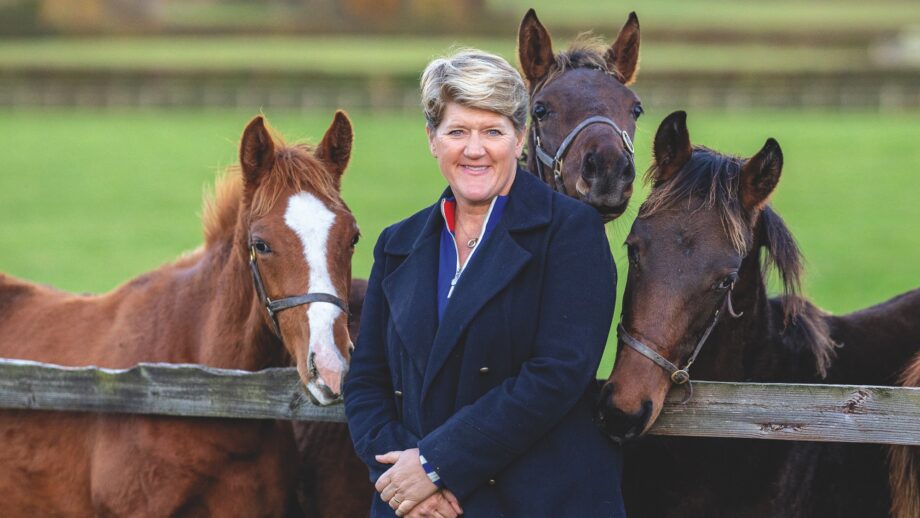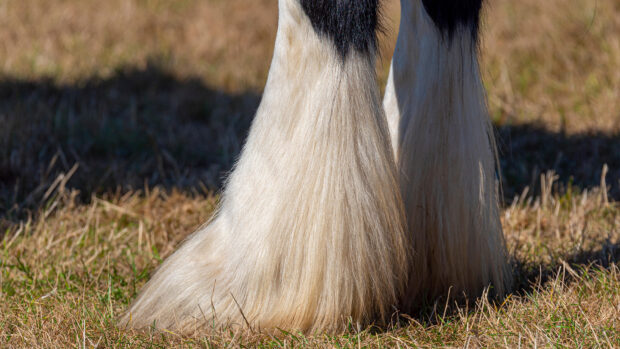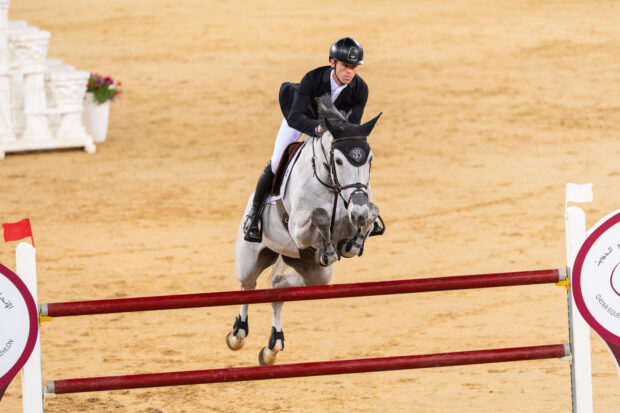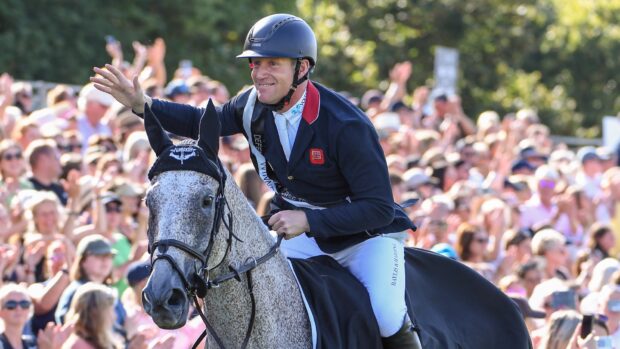Long before Celebrity Traitors was even a twinkle in Claudia Winkleman’s eye, Clare Balding was a hero of the horse world. A former leading amateur Flat jockey and for many years the soul of British TV racing coverage, in recent decades she’s transcended the horse world to become a household name.
During that journey – via multi-discipline Olympic broadcasting, Who Do You Think You Are and, as of this week (8 October), Celebrity Traitors – she’s continued to represent an honest, likeable picture of the horse world. As a broadcaster and author she’s quietly banged the drum for horses and racing – among other passions and causes close to her heart.
When The Times journalist Caitlin Moran read Clare’s autobiography, My Animals and Other Family, she exclaimed: “You’ll laugh, you’ll cry, you’ll want a horse.” What an ambassador for horse sport.
And so it is in her newest role, that of adult fiction writer. Yes, she’s already engaged children with her series that includes The Racehorse Who Wouldn’t Gallop, now she’s talking to the grown-ups.
When I say “adult fiction”, and you hear it was the late Dame Jilly Cooper who encouraged Clare to write this book, you might be expecting a risqué read. Fear not, as Clare confirms: “No, I’ve not gone full Jilly.” But she has followed Jilly’s suggestion to write about dogs and horses and human emotion.
In fact, we have Celebrity Traitors to thank for part of the book coming to fruition.
“Earlier this year I was in Scotland to film Traitors, and we were not allowed the internet, but I could load the book up and then rewrite and edit,” she explains. “It was a really concentrated time. I couldn’t turn on the telly, so I could focus on severely rewriting the book.”
The plot revolves around a woman, Alex, who inherits a farm in Monmouthshire and ends up running a racehorse syndicate in an attempt to save a neighbouring trainer. Clare is passionate about syndicates, explaining: “It’s the only way that racing in this country will survive.
“Racing isn’t just a plaything for the uber rich who can own 20 horses. I wanted to promote horses in this way – and the idea of supporting smaller trainers. With shared horse ownership you share the highs and lows, it’s wonderful.
“Formula One is hugely successful, but you can’t access that as an owner without a huge amount of money. And you can’t suddenly go and buy a football club, unless you’re Ryan Reynolds.”
Clare also wanted to highlight the idea of racehorses as individual characters.
“I wanted to show the care and attention trainers can give difficult horses – they say ‘write about what you know’, and I know a lot about that,” says Clare, having witnessed both her father Ian and brother Andrew’s hard-earned successes come to be.
“Good trainers know horses can be coaxed with understanding. If something doesn’t work they’ll try something else. It’s a beautiful thing to work towards. For so many people their relationship with their horse matters more than anything else. It really affects you when you get your approach right. Plenty of people will be able to tell you about that horse – it changes you and you feel it.”
For Clare that horse was Knock Knock – a racehorse who came to her father’s having won one race some time ago.
“He was brilliant on the gallops, but on the racecourse he didn’t want to know. He loved people but hated other horses. I took him in an amateur race and gave him space – he won at 25/1. I rode him 14 times and was often in the top two. That was a real joy.
“Then he started running in good races with a good jockey, who would ask me what to do. I said, ‘Don’t pick your stick up, just leave him to it.’”
Clare Balding: “We all love to be the heroine of our own ponies”
Thinking back further her favourite pony was Frank.
“I loved him because nobody else could ride him – we all love to be the heroine of our own ponies,” she laughs.
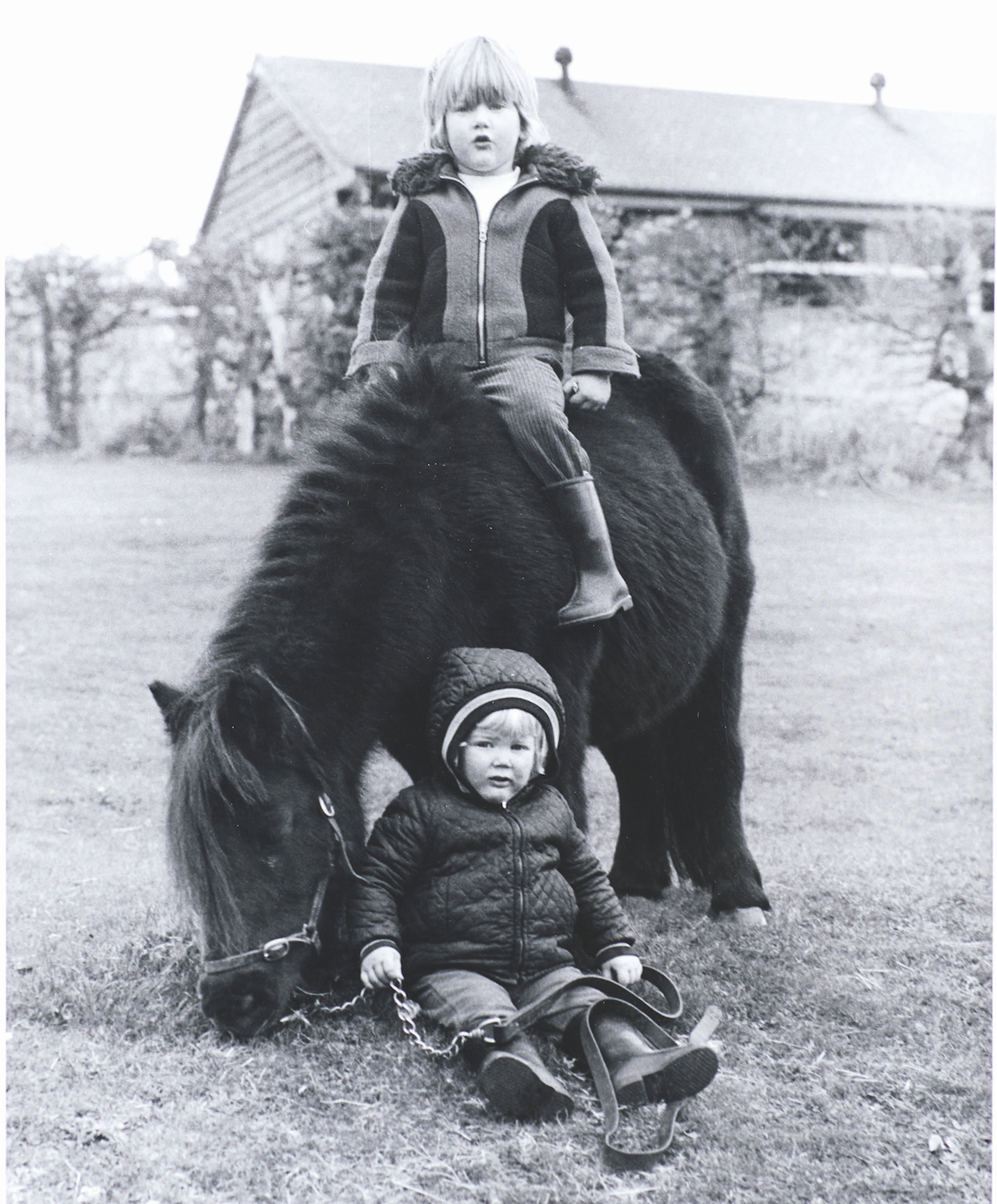
Clare Balding and her brother Andrew had a childhood steeped in ponies
Clare chooses a jockey called Lucy for her novel, who has a similar approach of coaxing not strong-arming her ride, and acknowledges what great women like Rachael Blackmore, Lucy Alexander and Bryony Frost have done in recent years.
“My niece Flora is a lovely rider and I see her getting the benefit I got from riding when I was young – I couldn’t wait to get home from school and go for hours and jump everything. It shapes you a lot as a young woman. In a sport where women are as good as men, and I saw Lucinda Green winning Badminton over and over, the best in the world were women and I thought that’s a world in which you can achieve.
“Lucy in the book does more homework than anyone else. I think that’s true of women in a lot of industries. It shouldn’t be gender dependent. In my world, broadcasting, you over-prepare.”
Clare Balding on effective storytelling in horse sport
In this era of questioning the ethics of everything we do in the horse world, we could do with more Clares bringing the truth to a wider audience. When I watched her Grand National preview features back in the day I would sit with a lump in my throat willing on the outsider and supporters who invariably had an emotional story to share that made them heroes of the piece.
Clare was passionate about those stories, finding them and sharing them in an accessible way. It’s a long time since she’s had that role though, and as for today she believes that “racing hasn’t got its storytelling quite effective”.
“There’s not enough about the connection between people and horses,” she says. “I still care – I’m a member of The Jockey Club and my brother has the biggest yard in the country – and so I write about it and that’s how you can influence people.”
Clare would like to see racing being more proactive, rather than reactive, using social media and the big screen at courses.
“When did you last go to a racecourse and see foals playing in a field [on the big screen]?” she asks. “Eventing does that much better. Riders are articulate – they run their own businesses and understand what it is to promote yourself in a positive light. Racing has some people that can, and some that assume that the British Horseracing Authority or The Jockey Club will do that for them, but they’re always firefighting.
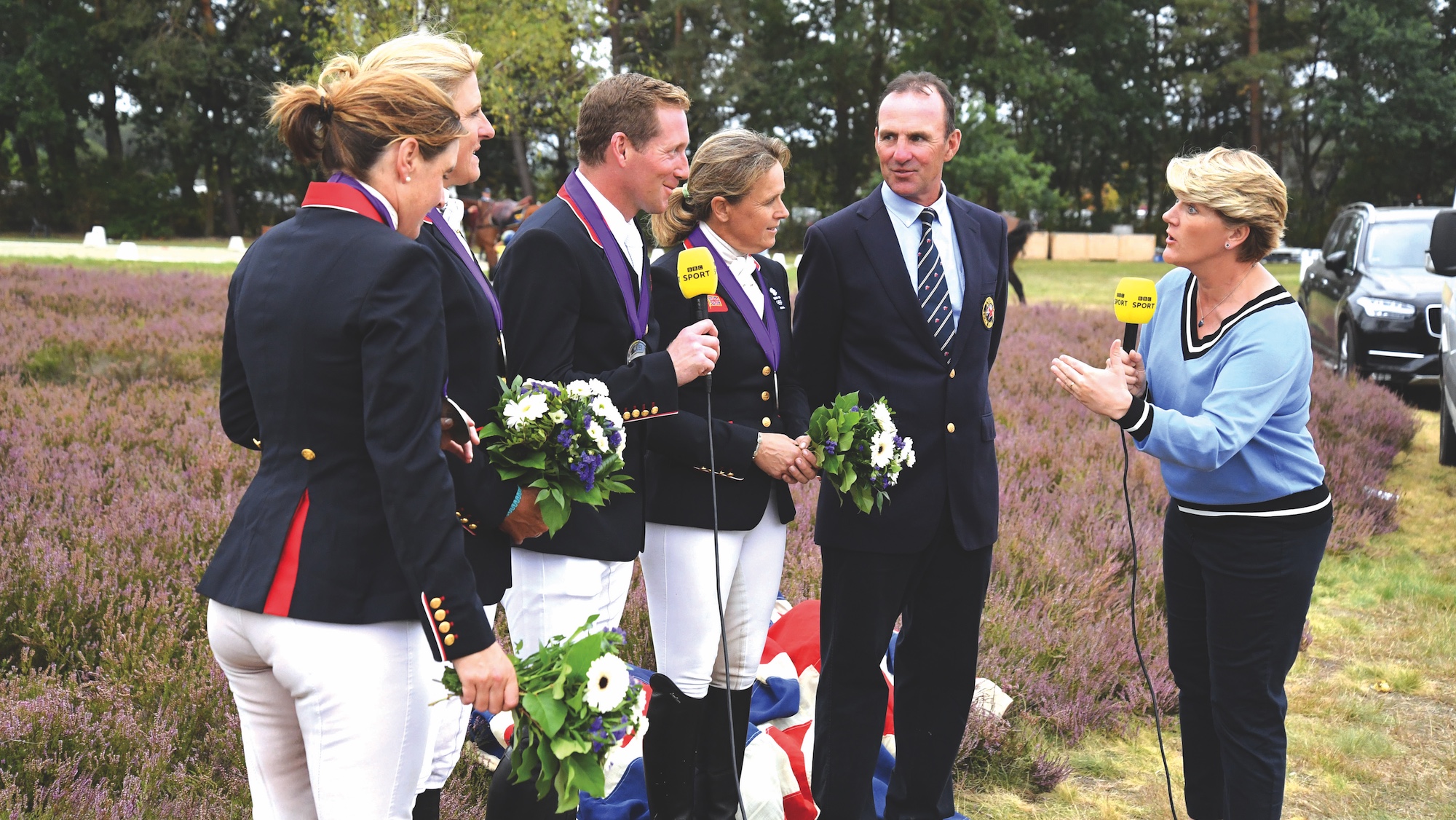
Clare interviewing the British eventing team at the European Championships 2019. Credit: Peter Nixon
“The most effective way of telling your story is to show it. I worry for equestrian sport in general because PETA has targeted racing but if it switches its gaze there’s quite a lot to be frightened of. We’re not wanting to react to that – anticipate and tell the story with positivity.”
She would rather see bodies working together on welfare issues, challenging literature sent out by groups like PETA, who write to people who want to invest in equestrian sport.
“It should be a team effort, putting out positive literature. Put a different spin on what working with horses can do for people too. Perhaps include a report on a teenager now working with horses and less inclined to get involved in crime.
“My brother employs over 100 people. Young people come in not having structure in their lives – suddenly they have to get up early, be fit, do the physical tasks, and structure is a good thing in people’s lives. They are told what to do and when, in a community all doing the same, and treated on an equal basis. There are loads of positive examples within racing.”
Country life and London living
Clare bridges the divide between country life and living in London with ease – but understands the divide between rural and urban living. She enjoys drawing these themes out in observational writing.
“In rural areas friendship is forged through necessity,” she says. “You turn up with food. If the sheep escape you all help get them. The community in the pub in Monmouthshire [in the book and in real life] has folk who want to make your life better.” She admits her neighbour came round in an instant when her London home flooded, but adds: “In the country that happens more readily.”
The lead character in Clare’s novel is someone who hasn’t come from an equestrian background, but naturally attracts animals.
“I see people in life who are connected to animals and it happens that horses are calm around them and dogs come to them,” says Clare.
“I don’t know whether that’s inherited, or something about their smell. Animals are very sensitive to someone who is afraid – they know straight away. I’ve written before about horses and dogs reflecting the best and worst of us, kindness and understanding versus nastiness and impatience – they will bite someone they don’t want to be around.”
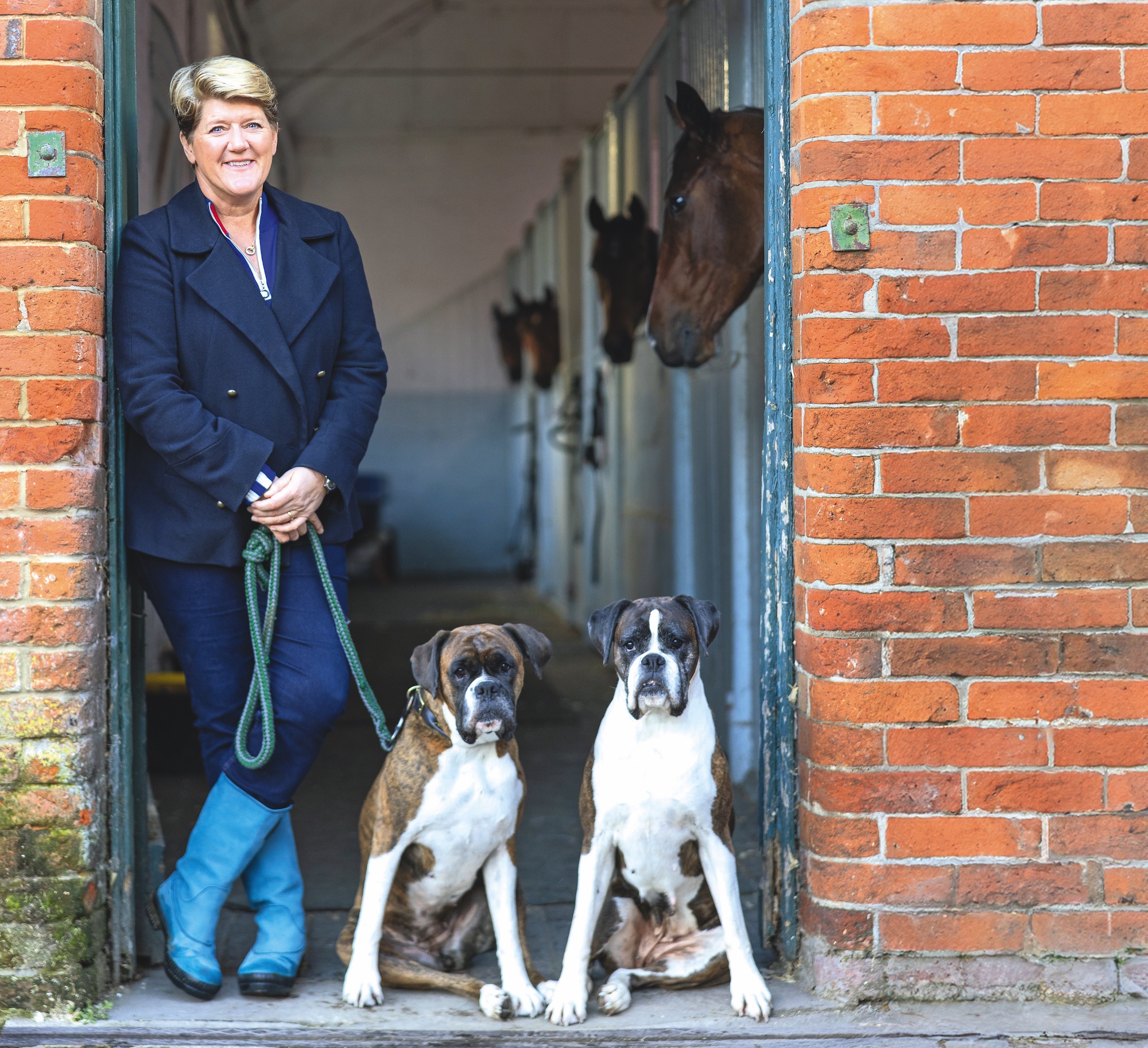
“Write about what you know”: dogs and horses are a lifelong theme. Clare Balding pictured with boxers Doris and Georgia. Credit: The Field/Millie Pilkington
The notion of equine therapy is introduced in the book and Clare has so much left to say on it.
“We know that horses are so big and strong and could stamp all over us if they wanted to. There’s something very moving about that.”
She was influenced by visiting a centre in north London where kids who had been excluded from school, mainly teenage boys, were introduced to horses for the first time in their lives. “They were intimidated by something they couldn’t control, you saw them becoming gentler.”
For now Clare is in London, but she talks so fondly of country life perhaps that will change. As for riding, not now.
“I did it when I could, to the best of my ability. Now my knees are not up to it,” and besides, “why would I ride a horse when I can get the world number one to do it?” she laughs, referring to her and Suzy Doggett’s beloved Barrington Bear – Burghley young event horse five-year-old winner in 2022 – who is now competing with eventing world number one Harry Meade.
“I’m happy talking about it on telly, or writing about it, and I love being around horses. I love being part of the eventing world, it takes me to places and you rock up in your jeans and before long you’re carrying a bucket of water.
“I don’t know what I’d do if I was presenting at Badminton and Barrington Bear was competing – I’d be a wreck, I’d be in tears.”
We’ll look forward to watching that story being told by the master.
Did you enjoy this interview? You may also like to read…

Clare Balding sheds a tear as she discovers her family’s history on TV
Broadcaster Clare Balding delves into her history on the BBC One programme Who Do You Think You Are?, and discovers

The Racehorse Who Wouldn’t Gallop: Clare Balding releases children’s book
Clare hopes the story, which centres on a horse-mad heroine with big thighs, will boost body confidence among children

‘Horsey people just get on with it – even when dignity goes out the window’: 61-year-old rider takes on BBC’s Race Across The World

Subscribe to Horse & Hound magazine today – and enjoy unlimited website access all year round

